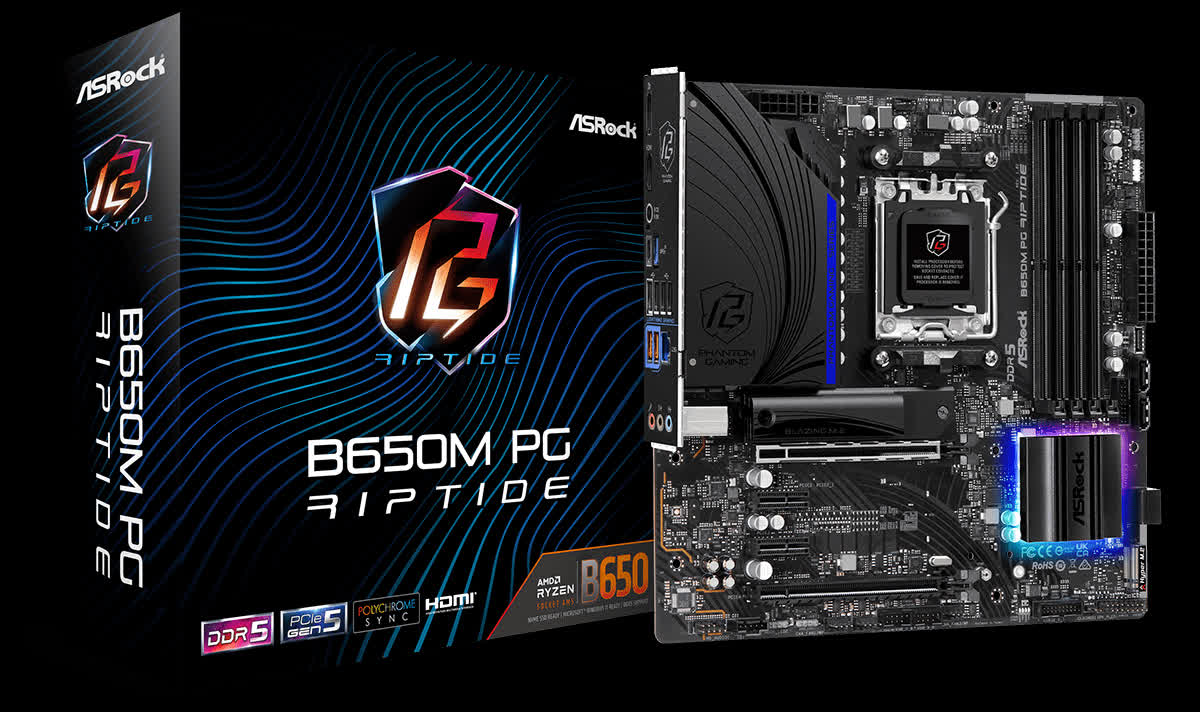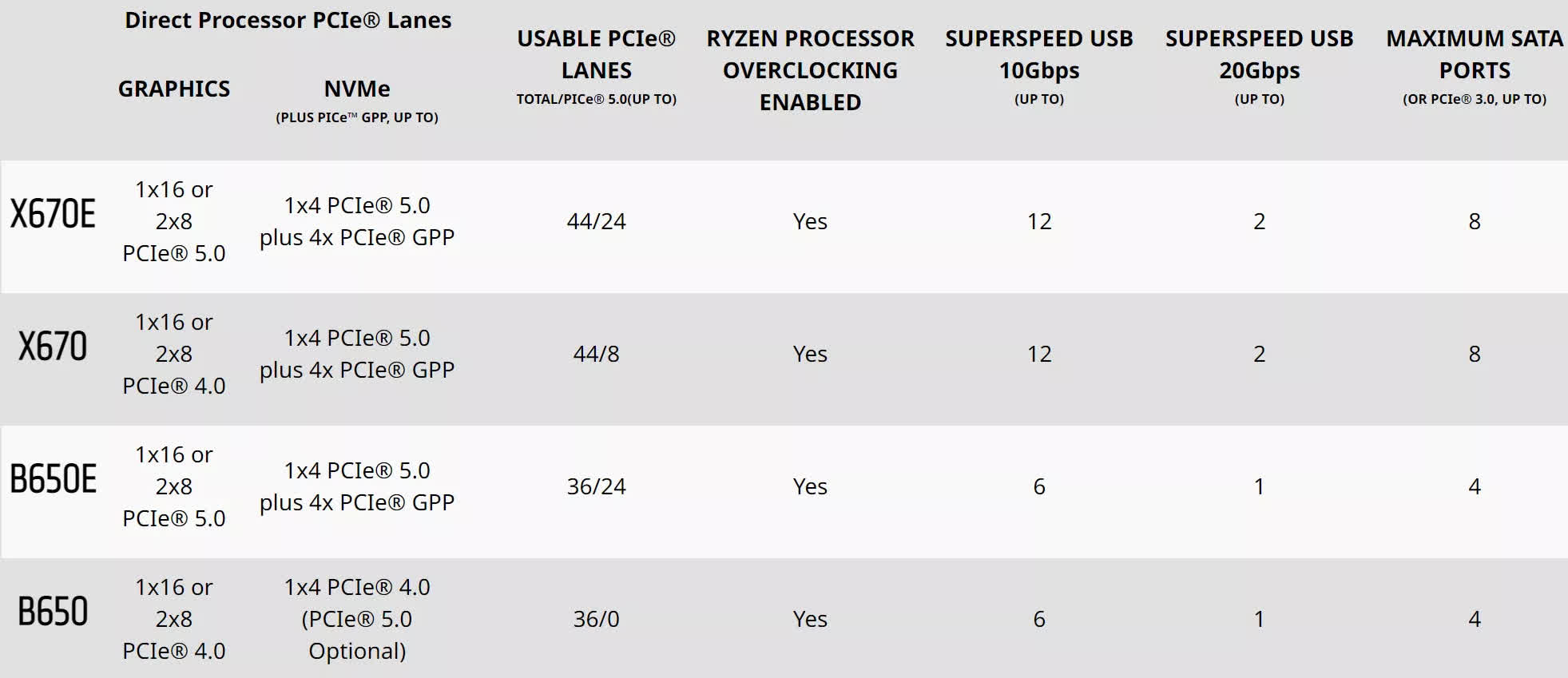The big picture: One of the main complaints with AMD's latest Ryzen 7000 processors is the high platform cost. AM5 only supports pricier DDR5 memory, unlike Team Blue's LGA 1700 platform. AMD has also had only premium X670 and X670E motherboards on the market, although that changes today with the release of B650(E).

Motherboards based on AMD's midrange B650 and B650E chipsets are now finally available, offering users a (slightly) lower cost of entry to the AM5 platform. Newegg currently lists over 25 models from the four major manufacturers, with prices ranging from $170 to $450.
So what exactly is the difference between all the AM5 chipsets? X670(E) motherboards make use of two Promontory 21 chips with four PCIe 4.0 lanes reserved for inter-chipset communication. Meanwhile, the B650 series uses just one chip, meaning it essentially offers half the connectivity of its premium counterpart.
Ryzen 7000 processors also offer up to 24 PCIe 5.0 lanes and due to the difficulty of routing such a high bandwidth, the two B650 variants handle them differently. B650E offers 16 PCIe 5.0 lanes (1 x 16 or 2 x 8) for graphics cards and at least one PCIe 5.0 M.2 slot for storage. In contrast, B650 has to deliver just PCIe 4.0 across the board, with PCIe 5.0 support for storage being optional, according to AMD. Also worth noting is that all AM5 motherboards revealed thus far support overclocking for both the CPU and memory.
The cheapest B650-series motherboard currently listed on Newegg is ASRock's B650M PG Riptide at $170 ($75 less than the cheapest X670(E) motherboard). At that price, you get a Micro ATX board with 12+2+1 power phases rated for 50A. The rear I/O is pretty basic, with a 2.5 Gbps LAN port and no Wi-Fi card, while the fastest USB ports top out at just 10 Gbps. However, the motherboard does offer a PCIe 5.0 M.2 slot (plus another limited to PCIe 4.0 speeds).

When AMD announced its Ryzen 7000 series processors, the company claimed AM5 motherboards would start at $125. However, it didn't mention if that price point would apply to B650 boards or a yet-to-be-announced A620 chipset.
https://www.techspot.com/news/96263-amd-b650e-motherboards-now-available-starting-170.html
